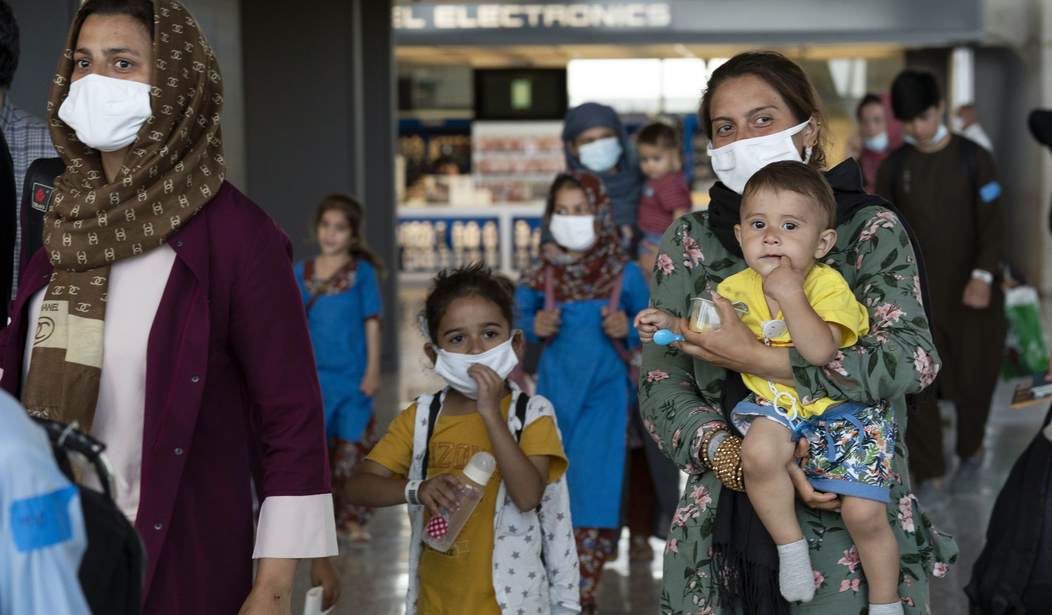As we discussed here earlier this morning, Congress managed to pass a continuing resolution (CR) bill last night that will keep the government funded for at least a few weeks. I think most of us just assumed that this was the normal, bare minimum funding required to keep paying government workers and prevent the lights from going out on Capitol Hill. But there were some other items tucked into the bill that fell well outside of what would be considered business-as-usual. One of them was additional emergency relief funding for hurricane recovery, a measure that most of us probably don’t have too much of a problem with. The other was simply described as funding to aid Afghan refugees coming to the United States. That part was a bit more controversial in some circles, but given the debacle we witnessed during the fall of Kabul, it seemed understandable, at least at first glance. But as Andrew R. Arthur pointed out at the Center for Immigration Studies before the bill was passed, there was one detail in the Afghan aid provisions that should be a cause for concern.
CRs are “must-pass” bills because they provide money allowing the federal government to run its operations and pay government benefits to Americans (both U.S. citizens and lawful immigrants).
If you go to p. 82 of that bill, section 2502, you will find an unnamed provision that provides lavish benefits to Afghan nationals who are or will be paroled into the United States between the end of July 2021 and the end of September 2022; as well as the spouses, children, parents, or legal guardians of those individuals who are paroled thereafter.
I will leave it up to others to decide whether giving massive amounts of cash to aliens who have no real status in the United States is a good idea or not. My main concern is the fact the CR makes paroled Afghan nationals eligible for driver’s licenses and identification cards, even if they are barred from receiving them under a law passed to protect the American people against national-security risks.
As Andrew points out, you can read the details in question, specifically on page 84 of the bill. In addition to the various benefits in the form of cash and services being made available to the newly arrived Afghan refugees, they will all be entitled to “a driver’s license or identification card under section 202 of the REAL ID Act of 2005.”
That might not be an issue if the system was currently functioning as advertised, but it’s really not. We were originally told that the evacuation flights were bringing out American citizens, green card holders, and our Afghan helpers who would be at risk of losing their lives to the Taliban. But as we’ve been learning recently, many of the new Afghan arrivals have little or no verifiable history of having worked as helpers to the NATO allies before showing up here. The chaotic situation at the Kabul airport was such that we were just trying to fill up planes as quickly as we could and a lot of people slipped through the cracks.
I have no issue with offering sanctuary and even some aid to the translators and other helpers who legitimately worked with our troops for substantial periods of time. Even then, though, they need to go through the appropriate background checks just like everyone else. But a significant number of these people didn’t show up with any form of ID and we really don’t even know who they are. And we’ve already run into some incidents of criminal activity by refugees as the facilities where they are being housed.
Just handing unknown people a “REAL ID” license or identification card without the proper vetting is problematic and potentially dangerous. As Andrew Arthur informs us, the 9/11 Commission’s final report specifically warned that “sources of identification are the last opportunity to ensure that people are who they say they are and to check whether they are terrorists.”
We don’t even know who some of these people are yet, or at least not with the required level of certainty. And we’re just handing them one of the most valuable tools available that will allow them access to airline flights, government buildings, and other sensitive facilities? Having already brought them here it’s probably a bit late to turn around and send them back unless they show up on a terrorist watch list (assuming we can figure out who they are). But perhaps we need to slow down a bit and expend more effort into conclusively identifying them all before we start issuing them prime ID cards and turning them loose in the nation’s interior. If we don’t, someone will wind up being held accountable if one or more of them turn out to be al Qaeda or ISIS moles and they do something awful.








Join the conversation as a VIP Member